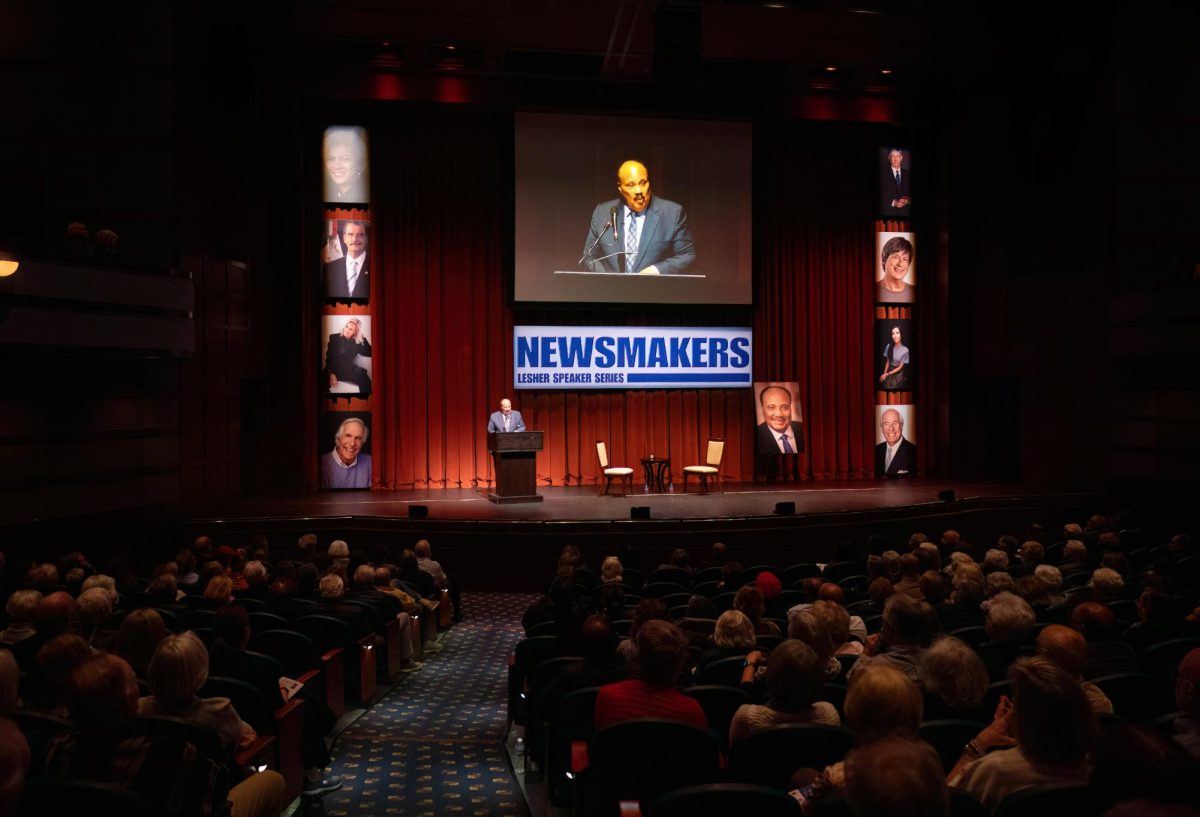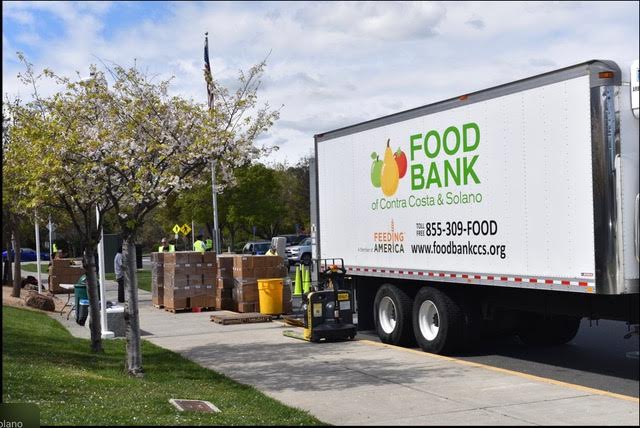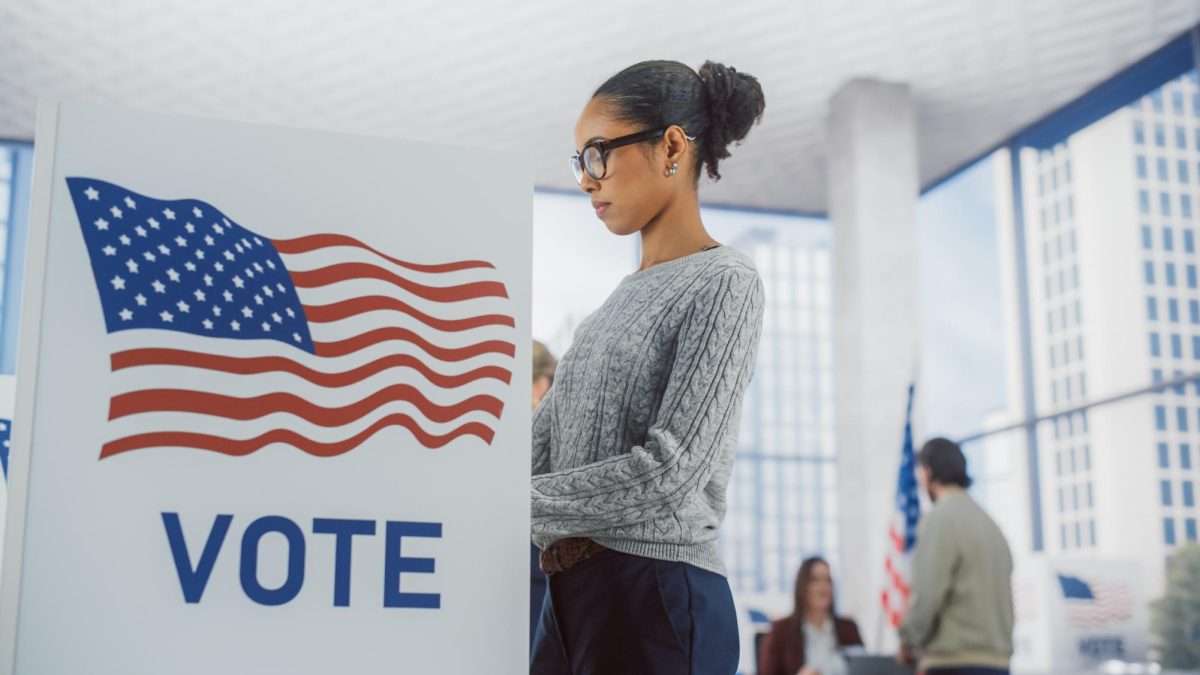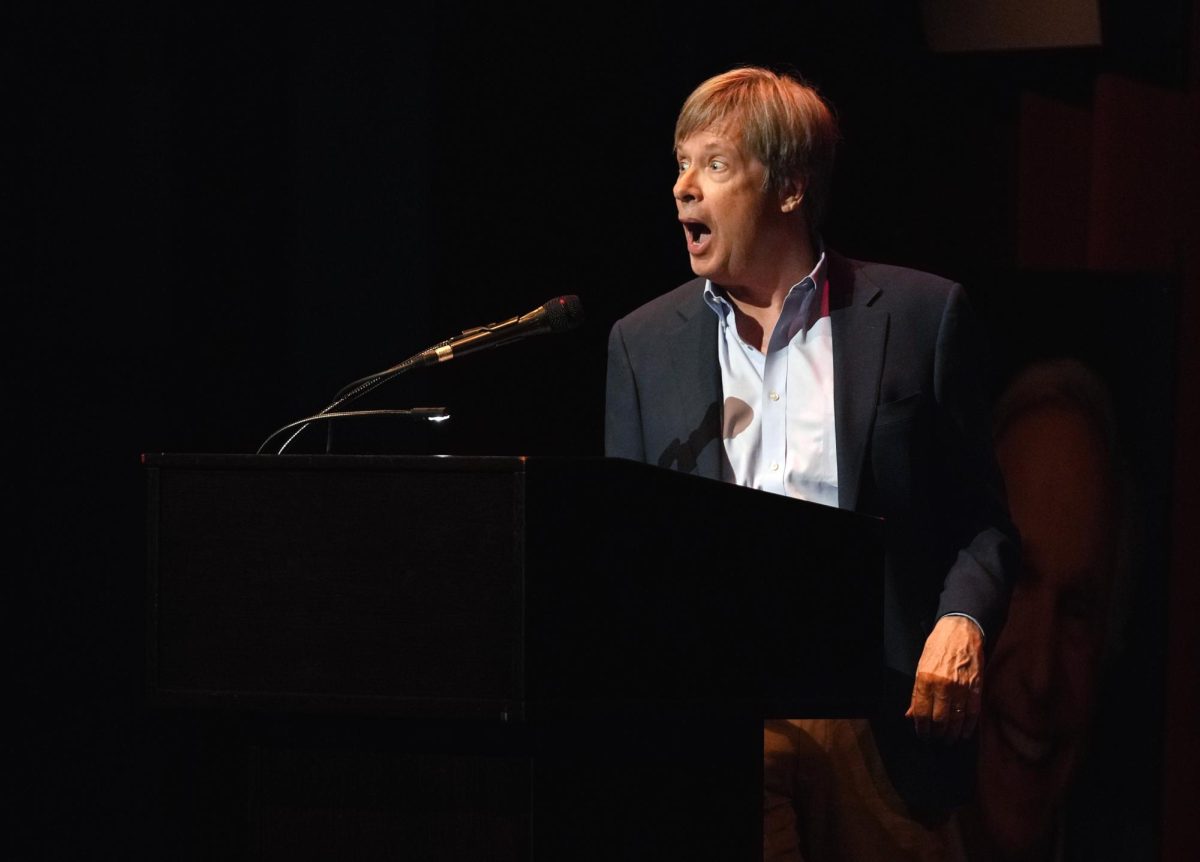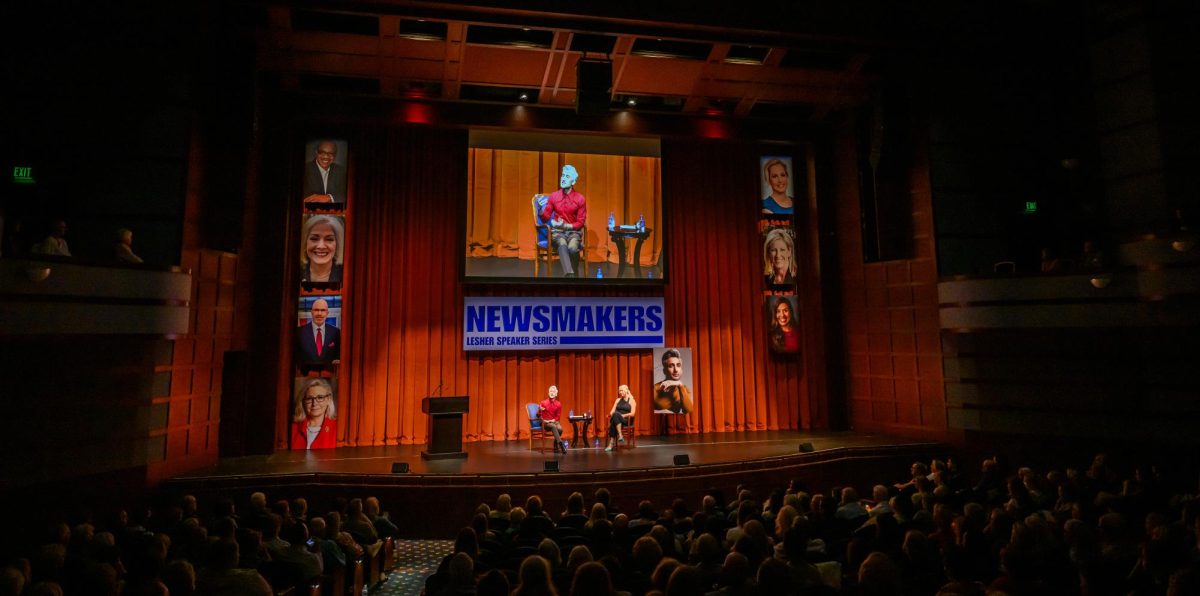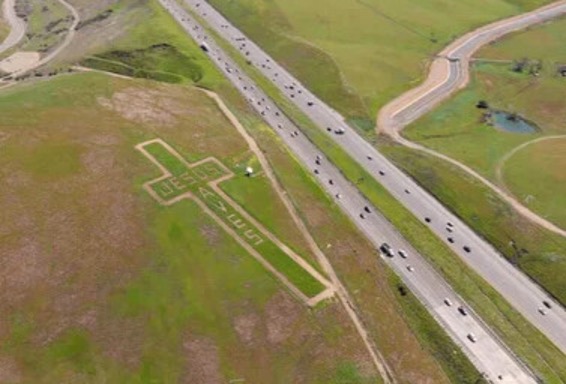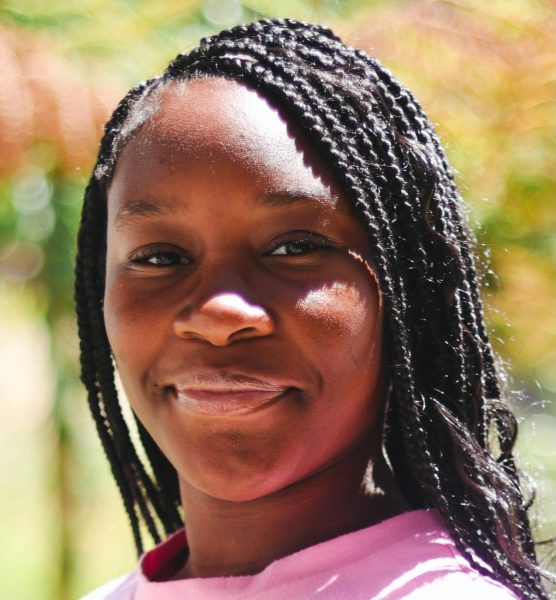In August 1963, Martin Luther King Jr. inspired the nation with his iconic “I Have a Dream” speech — a powerful vision for equality.
Almost 62 years later, King’s oldest son, Martin Luther King III, stood before nearly 800 people at the Lesher Center for the Arts in Walnut Creek, calling for “great leadership.” During his 90-minute speech he underscored that strides have been made; and he cautioned that the fight for human rights and racial justice is far from over.
King was the sixth presenter of the 2025 Lesher Foundation’s Newsmakers: Speaker Series, which is celebrating its 20th year of bringing notables from politics, journalism, entertainment, international affairs and sports to speak on an array of diverse and engaging topics.
Along with each speaker, the foundation chooses a Bay Area nonprofit to recognize for its work in the community. During the April 23 event, the Bridge Builders to the New Generation in Antioch was featured — an organization dedicated to helping underprivileged and marginalized youth achieve success.
As the lights dimmed inside the Hofmann Theatre a hush fell over the audience — their quiet anticipation almost tangible as they leaned forward, waiting for King to take the stage.
“The ‘I Have a Dream’ speech was the watershed for the United States because never before had an American leader described such a beautiful vision of understanding and goodwill between Americans,” King began. “I felt proud that my dad had given so many Americans a sense of hope and unity, the feeling that his vision could bring people of all races together.
“Martin Luther King Jr. didn’t just talk the talk,” he added. “He walked the walk, and that was the real source of his credibility.”
King carried on his father’s legacy
King said after his father was assassinated in 1968, his mom made sure that he, his younger brother and two sisters understood that racial justice was going to be a lifelong project for each of them.
“Through my father’s example and my mother’s determination, they taught us about the importance of building bridges, of greater mutual understanding and cooperation between people of different races and religions,” said King, who authored “My Daddy, Dr. Martin Luther King, Jr.” in 2013. “They taught us that nonviolence will always be the most powerful way to bring about positive change.”
King also spoke about the current political climate and human rights situation, emphasizing that while progress has been made, the country still has a long way to go. He highlighted his main goal: Encouraging Americans to become more involved in human rights and community service through Realize the Dream — an initiative of the Martin Luther King III Foundation created by King and his wife, Arndrea Waters King, and includes their 17-year-old daughter, Yolanda Renée, the lone granddaughter of the elder King. Realize the Dream aims to produce at least 100 million hours of service nationwide by Jan. 15, 2029, in honor of MLK Jr.’s 100th birthday.
“When we set in the history of America’s ideals and values, the issues of fairness emerge time and time again, and most ethnic and religious groups in America have experienced mistreatment and oppression for different periods of time,” King said. “What we want to create in America is a society in which all people, people of every race, religion and culture, are treated justly. We are all made in God’s image and we are supposed to treat one another with love, respect and kindness. That’s what being an American is all about.”
Event attendees and local residents agreed with King’s philosophy, clapping numerous times throughout the evening.
“[The event] makes me realize the fact that, yes, we have a long way to go, and obviously Martin Luther King Jr. laid down an amazing road. But, like his granddaughter says, we haven’t done the work,” said Laurie Hood, a Walnut Creek resident. “And it’s so sadly apparent, so obvious, but it’s good to know that it’s still in front of us, and I’m happy that the Lesher Center is a forum that brings amazing people here to talk to us and to expand our minds, and our thoughts and our experiences.”
Caroll Peña, a Concord resident, said that the presentation was inspiring, especially for young people who want to make an impact in today’s polarized and divided world.
“I thought [King] was very inspirational with the messages that he gave to the young people and what they can do to uplift our community going forward,” Peña said. “I think we need to hear these messages, especially right now.”
While King encouraged people to take action, he also emphasized the importance of nonviolence in activism and advocacy.
“We can’t be at each other’s necks all the time. That is not a sustainable practice. But nonviolence teaches us how to coexist, and there’s an old saying called ‘cooler heads prevail,’” King said. “If I’m hollering and yelling, you can’t even hear me and I can’t hear you, you automatically tune me out. Nonviolence teaches us to maybe reflect, to try to keep a conversation going, but the key is in a civil way, treating everybody with dignity and respect.”
Following his opening remarks, King sat down with Meg Honey — a Northgate High School educator — for a conversation that she said echoed their first meeting nearly a decade ago during the 11th Newsmaker: Lesher Speaker Series.
Addressing today’s turbulent political environment
It was during this discussion that he openly addressed the current presidency of Donald Trump, sparking significant interest from the crowd and generating numerous audience questions on the state of the nation’s economy and leadership.
“Great leadership is not about issuing executive orders that violate the principle of the three equal branches of government,” King said as the audience hummed in agreement. “Great leadership is not about encouraging un-elected billionaires … great leadership is not about starting trade wars with our members, disrespecting our allies or threatening to take over small countries.
“In America, we argue a lot about politics every day and all the time,” he continued. “It’s a good thing to be engaged in politics in a constructive way, as citizens, to make sure that we all have the opportunity to vote. [Leadership] is also the responsibility of those who work and direct the nation’s many businesses and corporations. The government and businesses have two separate missions.”
King went on to address the various recent deportations and mentioned how the majority of people being deported have jobs that are crucial to the economy.
“Some of the kids [who were deported] still haven’t found their parents. What happened to humanity? Do we not care? What if that was your child? Would you have a different standard?” King questioned the audience. “I’m passionate, but I’m angry that it is happening, and we’re not doing anything about it. That’s why we have to always stand up. That’s why we have to always stay engaged. We can’t give up, we can’t give in. We have to push back.”
Although King offered several viewpoints throughout the event, the major takeaway was it is time for us all to take action.
“That doesn’t mean that all of us have to address the issue, but collectively these issues can be addressed,” King said. “Leadership is about love … love for all of our fellow human beings. Even those we disagree with. Every effort we make is to help people improve our communities, our nation and our world.”
Keerthi Eraniyan is a 10th grader at California High School in San Ramon. Nakayla Conner is an 11th grader at Pittsburg High School in Pittsburg. Contra Costa Youth Journalism coverage of the Newsmakers series is made possible by support from the Lesher Foundation and the Bay City News Foundation. Stories are produced independently by the CCYJ news team.

